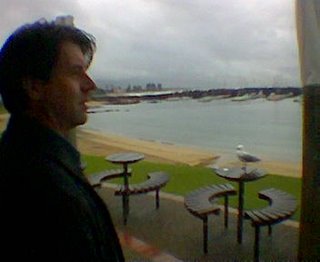Interrogation Techniques Approved at Guantanamo Bay

Below is a series of Interrogation Techniques approved fro use at Guantanamo Bay. Some of these are familiar from the movies. The "Mutt and Jeff" technique is the same as the "Good Cop/Bad Cop " routine.
A more detailed analysis of this can be found via Global Security online where the page is descibed as FM 34-52 Appendix H. The main FM (Field Manual) 34-52 is the US Army's Intelligence Interrogation field manual dated 1987.
They sound humane and reasonable when written as below. However read my post Fear up Interrogation 101 for a rather chilling example.
The below is from USA Today
U.S. interrogation techniques
In late 2002 and early 2003, Defense Secretary Donald Rumsfeld approved specific interrogation techniques for extracting information from Taliban and al-Qaeda detainees at the U.S. prison at Guantanamo Bay, Cuba. The Bush administration made the previously classified lists public Tuesday. The final April 2003 list of 24 techniques approved by Rumsfeld, plus three he rejected out of hand and seven that were initially approved but apparently later rejected:Approved techniques
• "Direct": Asking straightforward questions.
• "Incentive/removal of incentive": Providing a reward or removing a privilege, beyond those that are required by the Geneva Conventions.
• "Emotional love": Playing on the love a detainee has for an individual or a group.
• "Emotional hate": Playing on the hatred a detainee has for an individual or a group.
• "Fear up harsh": Significantly increasing the fear level in a detainee. (This is generally interpreted as yelling or throwing things but not touching the detainee.)
• "Fear up mild": Moderately increasing the fear level in a detainee.
• "Reduced fear": Reducing the fear level in a detainee.
• "Pride and ego up": Boosting the ego of a detainee.
• "Pride and ego down": Attacking and insulting the ego of a detainee, not beyond the limits that would apply to a prisoner of war. (Guidance notes that while the Geneva Conventions prohibit threatening or insulting subjects who refuse to answer, the detainees are not formally considered prisoners of war. Guidance says "consideration should be given" to the views of "other nations" that POWs should be afforded such protections.)
• "Futility": Invoking the feeling of futility in a detainee.
• "We know all": Convincing a detainee that the interrogator already knows the answer to the question he is asking.
• "Establish your identity": Convincing a detainee that the interrogator has mistaken him for someone else.
• "Repetition approach": Continuously repeating the same question to a detainee within interrogation periods of normal duration.
• "File and dossier": Convincing a detainee that the interrogator has a damning and inaccurate file that must be fixed.
• "Mutt and Jeff": Pairing a friendly interrogator with a harsh one.
• "Rapid fire": Questioning in rapid succession without allowing detainee to answer.
• "Silence": Staring at a detainee to encourage discomfort.
• "Change of scenery up": Removing a detainee from the standard interrogation setting — generally to a more pleasant location, but not to a worse one.
• "Change of scenery down": Moving a detainee from the standard interrogation setting to one less comfortable, but not one that would constitute a substantial change in environmental quality.
• "Dietary manipulation": Changing the diet of a detainee, but with no intended deprivation of food or water and without an adverse cultural or medical effect. Example: substituting MREs (U.S. military "meals ready to eat") for hot rations.
• "Environmental manipulation": Altering the environment to create moderate discomfort, such as by adjusting the temperature or introducing an unpleasant smell. Conditions would not be such that they would injure a detainee, and the detainee would be accompanied by an interrogator at all times. (Guidance cautions that some nations view this as "inhumane" and says that "consideration of these views should be given before application of this technique.")
• "Sleep adjustment": Adjusting the sleeping times of a detainee, such as by reversing sleep cycles from night to day. Guidance notes that "this technique is not sleep deprivation."
• "False flag": Convincing detainees that individuals from a country other than the United States are interrogating them. (Some other countries condone torture.)
• "Isolation": Isolating a detainee from other detainees while still complying with the basic standards of treatment. (A lengthy guidance notes that this technique requires detailed instructions and guidelines, has not generally been used for more than 30 days, and requires approval for extensions of the length of the isolation.)
Techniques approved in December 2002 but apparently dropped in April 2003:
• Forced shaving of the beard or the head.
• Hooding during transport and interrogation.
• Interrogations for up to 20 hours.
• Use of mild, non-injurious contact.
• Stress positions, such as standing, for a maximum of four hours.
• Removing a detainee's clothing.
• Use of dogs to frighten a detainee.
Techniques proposed by Guantanamo interrogators but rejected by Rumsfeld in December 2002:
• The use of scenarios designed to convince a detainee that death or severely painful consequences are imminent for him or his family.
• Exposure to cold weather or cold water, with appropriate medical monitoring.
• Use of a wet towel and dripping water to induce the misperception of suffocation.


1 Comments:
Have we lost our minds?
These people are willing to die. Does anyone think they'll give up information because they're egos are boosted? Geeze
By Anonymous, at 10:21 am
Anonymous, at 10:21 am
Post a Comment
<< Home